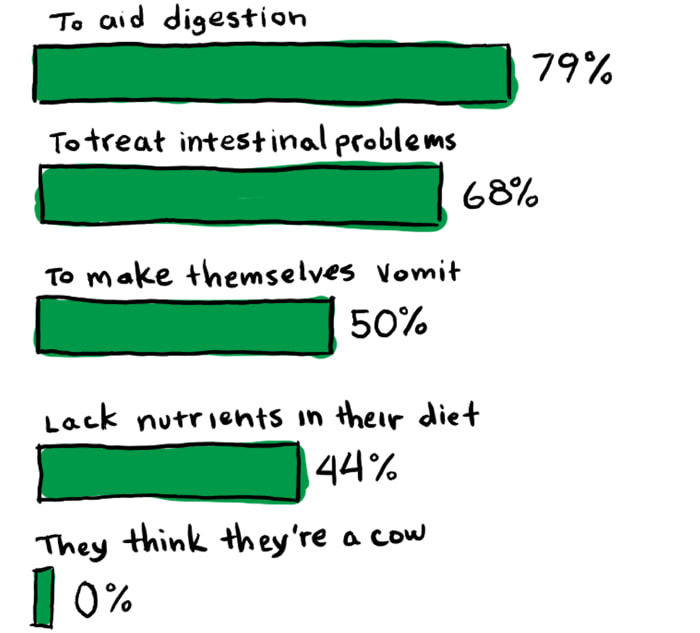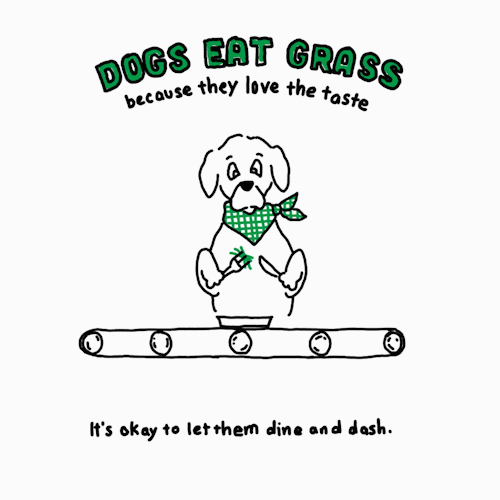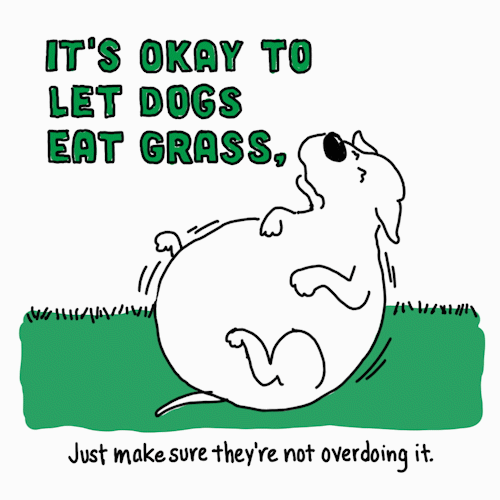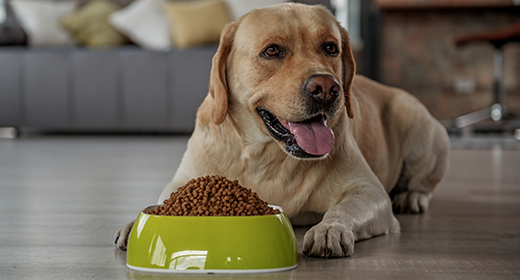

In a recent IAMS poll of dog owners,* 69% said their dog eats grass. That’s quite a lot. Owners also have quite a lot of theories on why their dog is noshing on the lawn.

It’s not just modern-day canines that eat grass. It’s likely something that has been going on for thousands of dog years. According to
Opens a new windowDr. Tammie King, Applied Behavior Technical Leader at Waltham Petcare Science Institute, “It is actually normal canine behavior. It has to do with innate behavior from canine ancestors. Potentially a remnant behavior.”
Dr. King also shared this with us: “A lot of people think dogs eat grass when they’re feeling ill, but studies have shown that’s not necessarily true.”
But then why do dogs eat grass? To get to the (grass)root of this issue, we asked
Opens a new windowDr. Jo Gale, BVetMed CertLAS MRCVS Senior Manager of Global Science Advocacy at Waltham Petcare Science Institute.
'There's no one reason. They just like the taste, texture and feel of the grass.'
So it’s perfectly fine if your pooch decides to have an occasional grass snack. Who doesn’t crave a salad every now and then?
However …

If your dog is getting adequate nutrition, there’s no need to worry. But the experts we talked with asked dog owners to please keep in mind the following:
· Grass that’s been treated with weed killer or pesticides should be off the menu.
· If your dog is eating grass excessively or routinely vomiting from eating grass, consult your vet.

Looking for the perfect dog food to pair with their side of sod slaw? IAMS has the answer for that, too.
*Surveyed U.S. dog owners, age 18+
Sample Size: n=201
Fielded May 8 to May 10, 2020


No two dogs are alike. So when choosing your pet's food, you'll want to take into consideration the dog's breed, size, age, weight, and lifestyle.
Full growth will happen at around 1 to 2 years, with the exact age determined by your dog's breed—small-breed dogs mature faster than large-breed dogs. “Grown dogs, especially ones who are more athletic, will start to eat more quantities in one feeding,” says Madan Khare, DVM. “You want to limit his feeding to one or two times a day, depending on his activity level.” Exact quantities should be determined by consulting your vet or by reading the package labels (just remember to split a daily serving in half if you choose to feed the dog twice a day).
When transitioning your dog from puppy food to premium adult food—such as IAMS™ ProActive Health™ Adult MiniChunks —you want to do it gradually. “Never change a dog's diet abruptly,” Khare says. Here's a schedule for transitioning your pet from puppy food to an adult dog food.
Day 1: Fill your dog's bowl with 75% puppy food and 25% premium adult dog food.
Day 2: Use 50% of each food.
Day 3: Feed your dog a mixture of 75% premium adult food and 25% of your current dog food.
Day 4: Give him 100% premium adult dog food.
Daily exercise and a diet packed with high-quality protein from chicken, lamb, or fish and essential nutrients will keep him happy and healthy throughout his lifetime. Premium dry pet food has all of the daily nutrition your pet needs. It helps promote healthy teeth and gums, too.
“When it comes to feeding your dog human food, I have three words,” Khare says. “No. No. No.” Interfering with your pet's food regimen by adding higher-fat and higher-calorie human foods can disturb the animal's digestive system. When it comes to biscuits, Khare recommends looking for ones low in sugar, salt, and fat. 'You have to keep in mind that you're adding calories to his daily diet, so offer them in moderation,” Khare says. Finally, make sure your pet has a clean bowl of fresh water at all times.